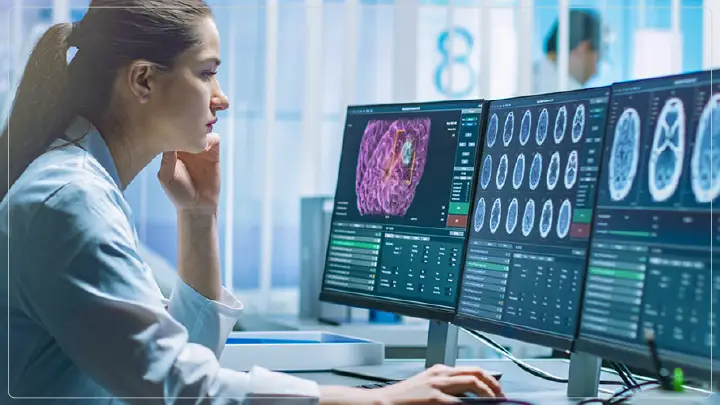Google Expands Healthcare AI and Medical Innovations with New Features and Products
Google has launched new healthcare-oriented products and features powered by artificial intelligence to improve accessibility in medicine, health-related searches, and innovation in artificial intelligence within medicine. These include enhanced health overviews for Google Search, wider language support, APIs about medical records, and new AI models for drug discovery. Google has continued to leverage AI and its ranking systems in increasing the number of topics for which it offers "knowledge panel" answers in the thousands: they will now provide quick, expert-reviewed summaries for common ailments. The tech giant is also rolling out support for healthcare-related queries in three new languages: Spanish, Portuguese, and Japanese, specifically geared toward mobile users, to make accurate medical information more accessible to non-English speakers and narrow the language gap in healthcare information.

What People Suggest’ Feature for Personalized Health Insights
Google's launch of What People Suggest on the Health Connect platform brings AI to bear on the amalgamation of user-based health experiences and online discussions. The outcome is a tool that presents useful insights on health topics, for instance, exercises for arthritis. Google seeks to balance expert medical knowledge with real-world patient experiences. Furthermore, new medical records APIs have been unveiled for its Health Connect platform, allowing users to access data from different sources and to read and write data across different apps. These APIs are worldwide for Android devices and integrate 50-plus data types, including activity tracking, sleep patterns, nutrition details, vital signs, and medical history. Health Connect plays an important role as a bridge between personal health data and medical records to facilitate users in tracking their overall well-being.
New AI-Powered Drug Discovery Models: TxGemma
With Cloud TxGemma, Google is delivering a collection of open-source AI models for drug discovery. The former Gemini bases were used to develop the new models, which sift through vast datasets looking for therapeutic candidates, provide insights to speed up the process of predicting molecular interactions in drug discovery and facilitate a new level of research in biomedicine through AI simulations. In this way, Google also advances itself at the forefront of emerging innovations in medical science.
Pixel Watch 3 Gains FDA-Approved ‘Loss of Pulse Detection’ Feature
In the USA, the Pixel Watch 3 will be launched by the end of March Google, with a new life-saving feature called Loss of Pulse Detection. Cleared by the FDA, the smartwatch consumes the detection of a user when there is no pulse in the body of the user. This may be the result of the most commonly known causes such as primary cardiac arrest, respiratory failure, or overdose or poisoning. In case the user does not respond, the smartwatch will make an emergency call automatically, which can save lives in critical situations.
Competitive Implications and Market Impact
"The new healthcare innovations at Google include Search refinements, integrated medical records-on-a-cloud testaments that promise a shift toward AI-powered patient-centric medical solutions." They include AI-powered tools like TxGemma and the increasing ability of the Pixel Watch. This depicts the proactive nature that wearables will assume in the personal management of health and the emergence of AI possibilities in drug discovery. Such initiatives by Google reflect a general trend toward combining AI and cloud computing with digital health"-to increase healthcare outcomes and to alter the future of accessibility and innovation in healthcare.